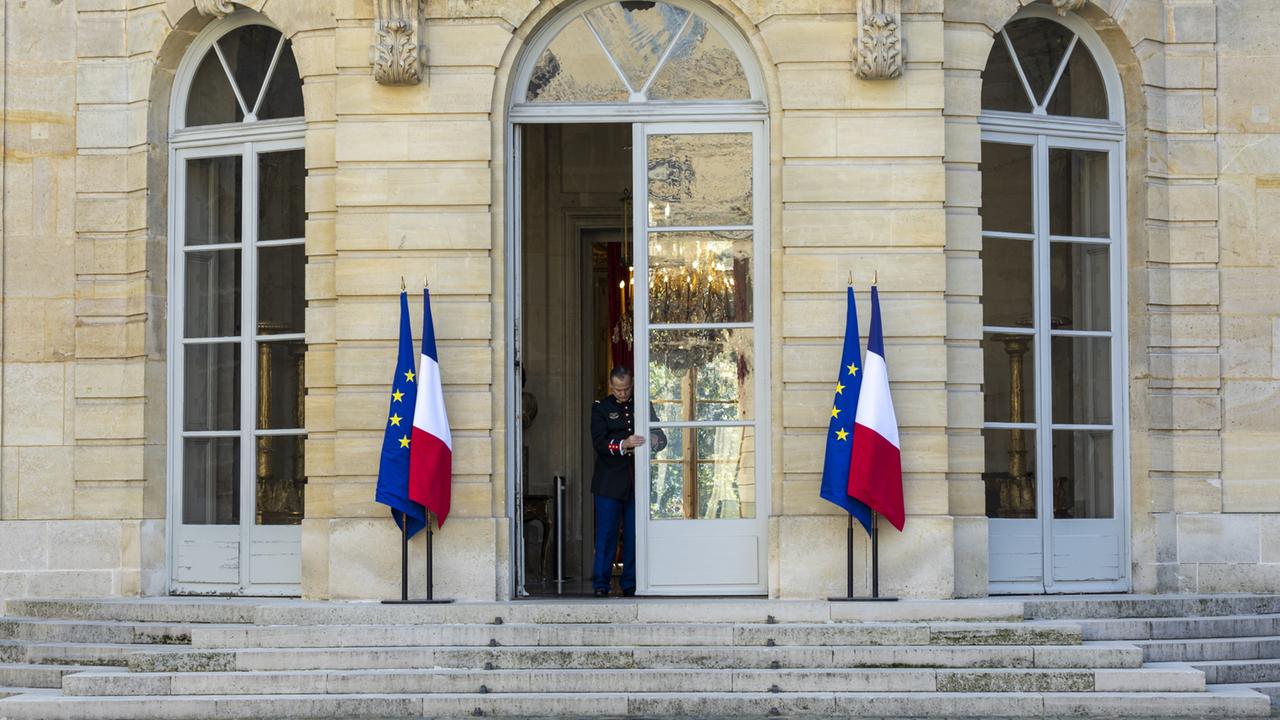After weeks of stalemate, France has a new government: a centre-right coalition. Negotiations on the budget for the coming year will be the first major project of the new Prime Minister Barnier, starting in October.
The new government has almost 40 members, 19 of whom are full ministers. This means that they are not subordinate to any other ministry. The lion's share of these key posts goes to the presidential camp. President Emmanuel Macron can thus at least partially compensate for the loss of influence after the parliamentary elections due to the number of ministers.
Nevertheless, the influence of the conservative Les Républicains (LR) is considerable. They hold the portfolios of Interior, Agriculture, Higher Education and Research, among others. This means that they are overrepresented in relation to the number of seats they hold in the National Assembly.
Political orientation: clearly right-conservative
The new executive team is the final proof that President Emmanuel Macron's second term in office is clearly moving politically to the right. This had already been shown in political projects such as the new immigration law – now this political evolution is also reflected in the composition of the cabinet.
The new Interior Minister Bruno Retailleau is particularly representative of this. Retailleau was previously head of the Conservative Republicans in the Senate, the upper house of parliament. He is considered a hardliner in security and immigration policy, and also a decidedly conservative valuer. Retailleau has tied his participation in the government to one condition, writes the AFP news agency. Namely, that its composition corresponds more to a “cohabitation” than a coalition, i.e. represents a certain opposition to the president.
In this respect, the new government is also likely to mean the definitive end of Emmanuel Macron's “en même temps” – the self-chosen leitmotif of his policy, with which the president has tried since 2017 to pursue and implement contradictory political goals simultaneously.
Fragile alliance and crisis of the political system
The presidential camp and the conservative Republicans together have 213 of the 577 seats in the National Assembly – anything but a comfortable majority. In addition, this alliance now has two forces in government that lost many seats in the elections. The left-wing alliance Nouveau Front Populaire, on the other hand, emerged from the elections as the strongest force, which can be explained to a large extent by the peculiarities of the electoral law.
However, if you look at the pure share of votes that the various political forces received in the second round of the parliamentary elections, a large majority of people in France voted for parties in the center or right, or far to the right. This raises fundamental questions: namely, about the extent to which election results are reflected in the composition of parliament and government. And whether France's political system still ensures representativeness.
The fact is that the composition of the government does not reflect the balance of power in parliament. This raises the question of how stable the Barnier government can be. Especially since not everyone in Macron's own ranks is happy about the strong role of the Republicans. The composition of the government therefore also strengthens the centrifugal forces within the presidential camp – which could cause additional instability.
A government “under observation”?
The question remains as to the role of the right-wing nationalist Rassemblement National, which – if we look at the parties individually – is the largest faction in the National Assembly. The RN made the appointment of Michel Barnier as Prime Minister possible in the first place, because the party around Marine Le Pen does not want to initiate or support a vote of no confidence against Barnier for the time being.
The RN sees Barnier as a political opponent, but wants to “give him a chance” to ensure a political turnaround, especially on the issues of security and immigration. As long as Barnier's policies are in line with the RN's wishes, votes of no confidence remain unlikely. But the RN also decides when things could get tight for Barnier and his government.
However, the Rassemblement National cannot bring down the government on its own. That would require the support of at least part of the left-wing alliance. And the RN is not particularly interested in causing even more unrest and chaos – after all, the party is trying to continue to present itself as a constructive opposition.
Baptism of fire budget debate
In October, the debate on the budget for 2025 will take place in Parliament. It is Barnier's first major project – and given France's financial situation, it is a Herculean task for which the new ministerial duo Antoine Armand (Economy and Finance) and Laurent Saint-Martin (Budget) are mainly responsible.
The national debt currently stands at around 110 percent of annual economic output. The budget deficit for the current year could reach 6 percent of gross domestic product, writes the newspaper Les Echos – the government's target was 5.1 percent. In order to reach this rate again next year, the new government would have to generate between 40 and 50 billion euros in revenue or save this amount, according to Les Echos.
The financial situation is likely to significantly limit the new government's room for maneuver and create additional political tensions.





